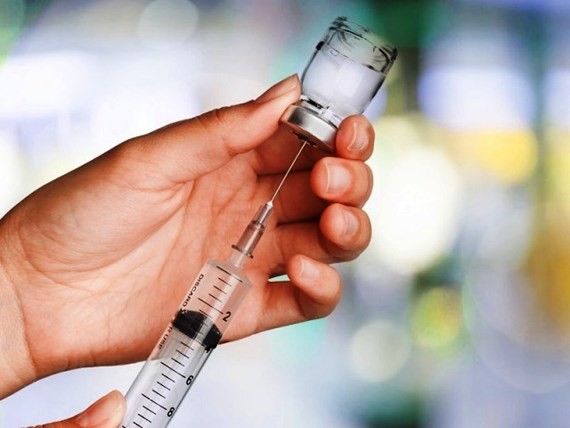
In May alone, Vietnam imported 267,200 dozes of anti-rabies vaccine, double the quantity in one month in 2017. It is scheduled that 240,000 dozes of the vaccine will be imported into the country in next month.
The country is experiencing yet another shortage of anti-rabies vaccines, raising fears of an increase in the spread of hydrophobia (rabies) around the country.
Because demand of the vaccine surged leading to shortage, Mr. Dong said importers reported to buy 103,000 dozes of vaccine Verorab as of May 21 and 138,000 dozes of Ahayrab vaccine as of May 27. In June, additional 14,000 dozes of Verorab and 207,000 dozes of Ahayrab will be imported into the country. 25,000 dozes of Indirab vaccine have been bought as of May 20 and in the end of June, the health sector will import around 10,000 dozes of Speeda vaccine.
Mr. Dong pointed out imported anti-rabies vaccine can satisfy demand at present. Around 2,156,740 dozes of the vaccine have been supplied in the market, 147 percent up compared to last year and 166 percent higher than average annual used quantity.
Leaders of the Ministry of Health, the Drug Administration of Vietnam, the National Institute of Hygiene and Epidemiology (NIHE), the "National Program for Rabies Control and toward Rabies Elimination in the period 2017-2021” and managers of departments of health met representatives of importers of anti-rabies to discuss measures how to supply enough vaccine to satisfy people’s demand.
Leaders of Health Ministry pointed out that because the vaccine is not included in the National Expanded Immunization program, importers are clear about the quantity. Accordingly, the National Program for Rabies Control and toward Rabies Elimination or preventive health departments in cities or provinces will assume coordination of the vaccine. These agencies also act as counsellors for people’s committees.
The drug administration will issue samples of contract between suppliers and medical facilities. The contract includes quantity of vaccine, prices of each kinds of vaccine, delivery time, and responsibilities of two sides.
Medical facilities must reserve enough vaccine in its stock to meet growing demand at least for one month use to ensure no interruption.
Anti-rabies vaccine should be imported double to meet people’s demand. Producers, importers and distributors are required to report to the drug administration about delay, shortage or discontinued supply of vaccine.
The Ministry of Health ordered importers and distributors to provide the vaccine to facilities in severe shortage.
The Ministry asked the National Institute for Control of Vaccines and Biologicals to quickly check batches of vaccine to meet demand of inoculation.
























